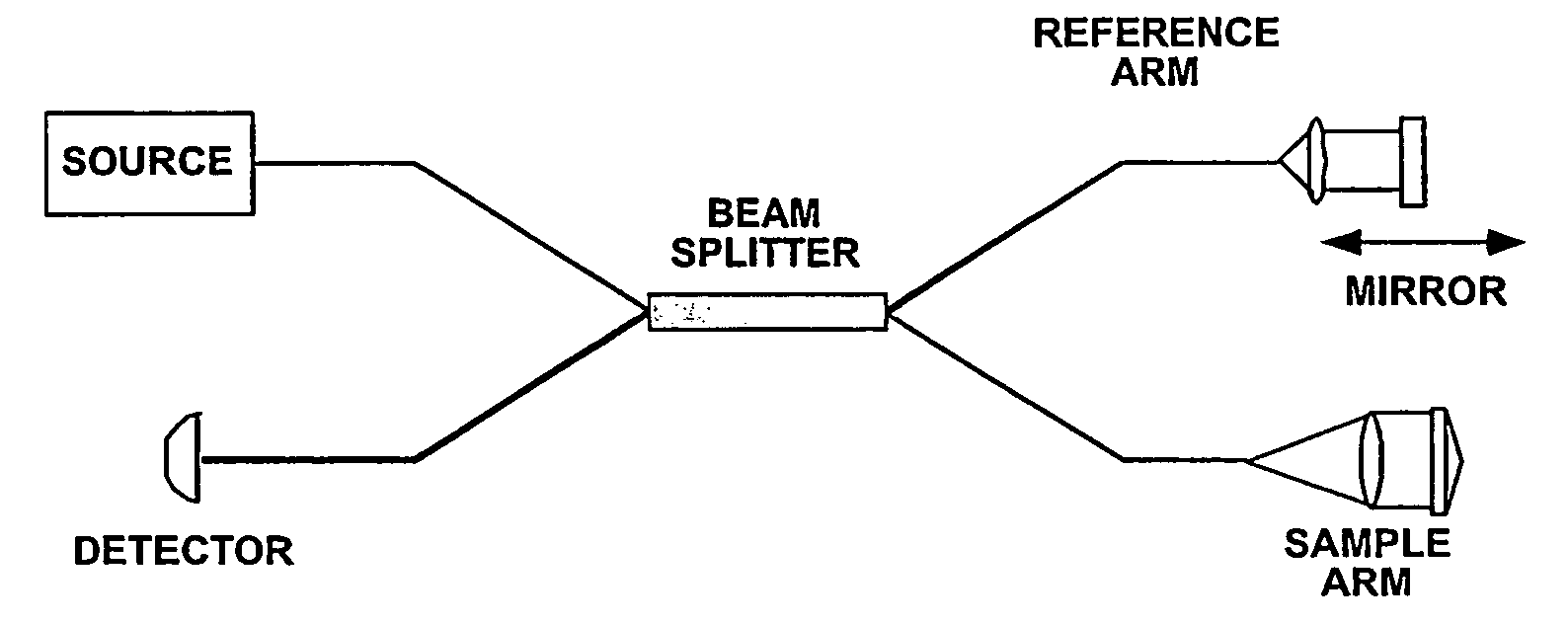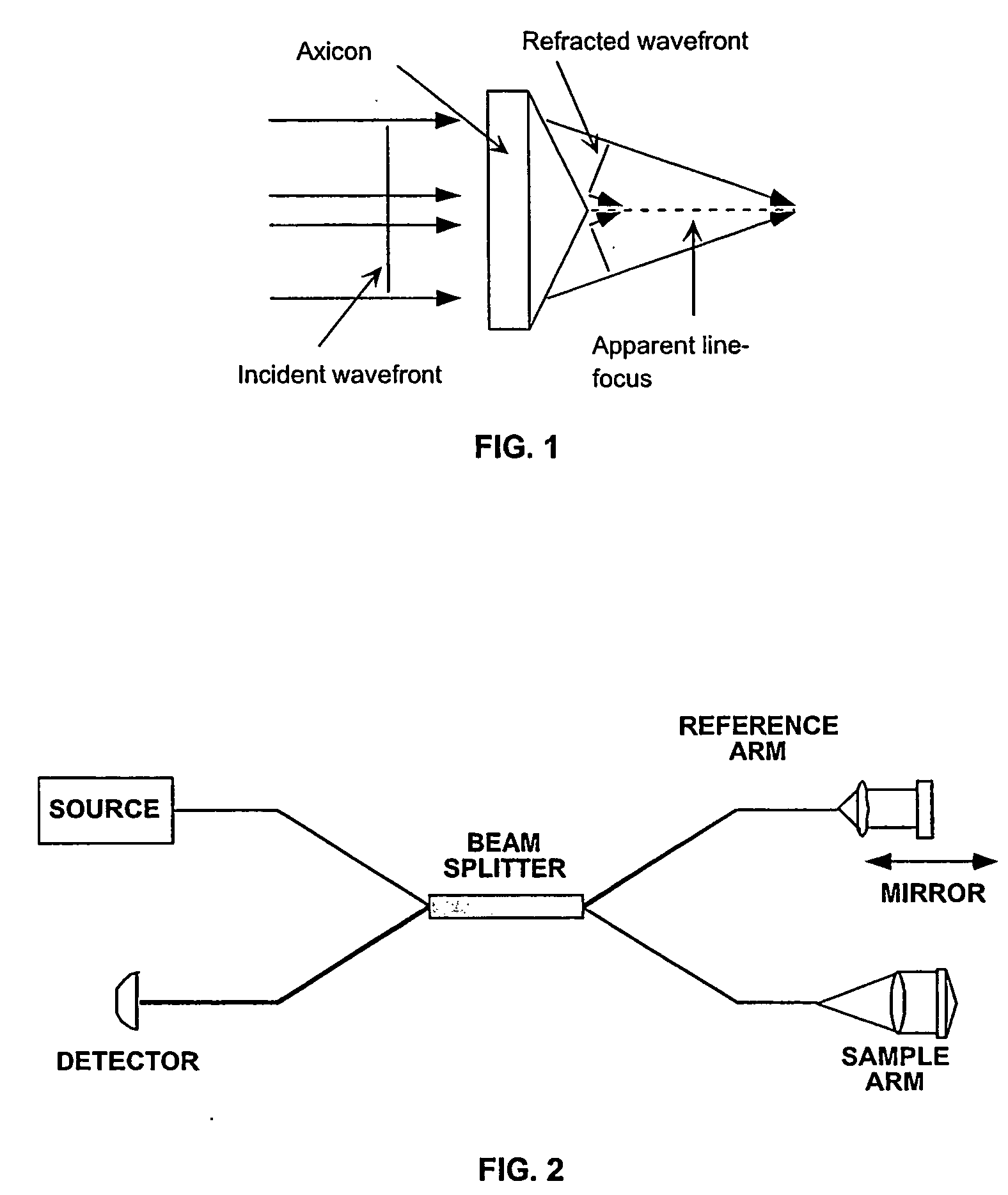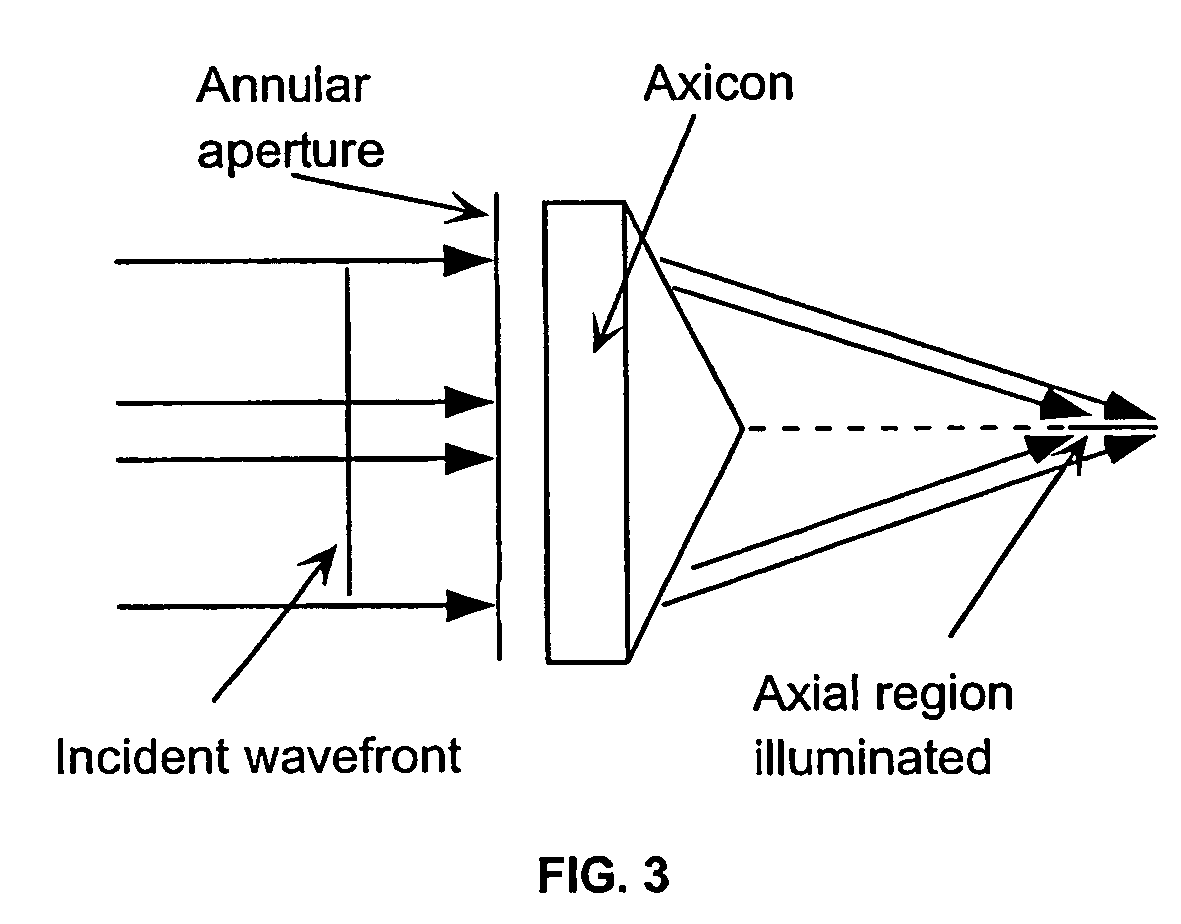Apparatus for low coherence ranging
a low-coherence range, optical coherence tomography technology, applied in the direction of instruments, scientific instruments, measurement devices, etc., can solve the problems of no known optical coherence tomography configuration, the use of optical coherence tomography (oct) is limited to the visualization of architectural morphological structures within biological tissues, and the imaging of sub-cellular features using oct is not well demonstrated
- Summary
- Abstract
- Description
- Claims
- Application Information
AI Technical Summary
Benefits of technology
Problems solved by technology
Method used
Image
Examples
Embodiment Construction
Definitions
“Axicon” shall mean any optic element (or combination thereof) capable of generating an axial line focus. Refractive, diffractive, and reflective axicons have been demonstrated. See, J. H. McLeod, J. Opt. Soc. Am 44, 592 (1954); J. H. McLeod, J. Opt. Soc. Am 50, 166 (1960); and J. R. Rayces, J. Opt. Soc. Am. 48, 576 (1958).
“Depth of focus” shall mean the longitudinal distance over which the beam diameter increases by a factor ζ (typically ζ=sqrt(2) or 2). For a Gaussian beam, the sqrt(2) depth of focus is 2zR=2π(d2)2λ.
For a typical Gaussian spot size (1 / e2 diameter) of d=5 μm, and a wavelength of 830 nm, the depth of focus is approximately 48 μm. The depth of focus for a uniform beam (3 dB full-width-half-maximum intensity response for a planar reflector moved through the longitudinal plane) may be defined as zu≈.9λNA2.
For a NA=0.2, which produces a spot size of 5 μm, the depth of focus for a uniform beam is approximately 17 μm at 830 nm.
“Longitudinal” shall m...
PUM
| Property | Measurement | Unit |
|---|---|---|
| distance | aaaaa | aaaaa |
| depth of focus Δz | aaaaa | aaaaa |
| depth of focus Δz | aaaaa | aaaaa |
Abstract
Description
Claims
Application Information
 Login to View More
Login to View More - R&D
- Intellectual Property
- Life Sciences
- Materials
- Tech Scout
- Unparalleled Data Quality
- Higher Quality Content
- 60% Fewer Hallucinations
Browse by: Latest US Patents, China's latest patents, Technical Efficacy Thesaurus, Application Domain, Technology Topic, Popular Technical Reports.
© 2025 PatSnap. All rights reserved.Legal|Privacy policy|Modern Slavery Act Transparency Statement|Sitemap|About US| Contact US: help@patsnap.com



